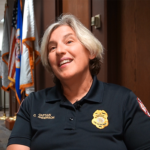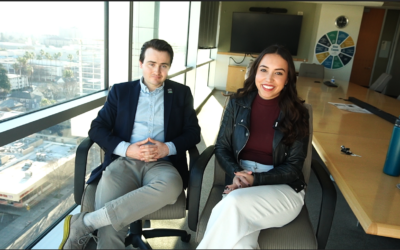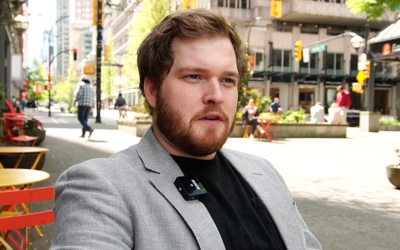Ask the Experts: What is Community Risk Reduction?
In our latest episode of “Ask the Experts,” we spoke with Minneapolis Fire Department’s Community Risk Reduction (CRR) Officer, Casidy Anderson. We discussed the role CRR plays in the fire service, the importance of data in fire prevention strategies, and how data is a tool used to help fire officials save more lives.
Meet the Expert
 Casidy Anderson is a Community Risk Reduction Officer with a demonstrated history of working in the public safety industry for over 16 years. She has extensive experience in Community Engagement, Emergency Management, Fire and Emergency Services, Risk Reduction, and Emergency Preparedness Planning. Anderson has certificates in Emergency Management, FEMA CERT Train-the-Trainer, NFPA Fire & Life Safety Instructor / Youth Fire Setter Intervention Specialist, and more.
Casidy Anderson is a Community Risk Reduction Officer with a demonstrated history of working in the public safety industry for over 16 years. She has extensive experience in Community Engagement, Emergency Management, Fire and Emergency Services, Risk Reduction, and Emergency Preparedness Planning. Anderson has certificates in Emergency Management, FEMA CERT Train-the-Trainer, NFPA Fire & Life Safety Instructor / Youth Fire Setter Intervention Specialist, and more.
Ask the Experts
Q: What is Community Risk Reduction?
Casidy Anderson: Community Risk Reduction is a fairly broad umbrella. What it entails is trying to target what is going on in our community in terms of emergencies and reducing those calls by employing education around safe habits. In a nutshell, we try to prevent fires by preventing them from happening in the first place. Prevention is the purest form of fire suppression we say in the risk reduction world. We try to keep the public safer through education.
Q: What role does data play in Community Risk Reduction?
Casidy Anderson: Data is so important for someone like me who is going out and talking about fire prevention. For example, I’m going out to the same groups year after year; if that’s not making a difference in reducing fires or keeping people safe, it’s important to have that data so that we can look at what’s happening in the city, what type of calls are we going on, when are the fires happening, what’s causing the fires, who is affected and then target those people specifically. Data is really important so we can focus on problems that can be solved.
“Data helping to save lives”
For example, I can go into the platform that you guys created for the state of Minnesota fire departments and I can look at what type of fires did we have in 2021 or what type of fires did we have over the last decade and narrow in on neighborhoods, who are being affected and all those things and develop a plan or campaign and see if it makes a difference over the years and if not, refining until we do see a difference, it’s so helpful.
Q: Why is Risk Reduction such an integral part of firefighting?
Casidy Anderson: Most of our emergencies are preventable through safer habits. The bottom line is 90% of fires can be prevented through safer habits. Most fires happen because of human error. Very few fires happen because of acts of nature – lightning strikes and that type of thing. So my main message is we can keep ourselves safer by just deploying safe habits.
Q: What are some important and potentially life-saving reminders for people?
Casidy Anderson: Cooking safety, smoking safety, and working smoke alarms.
Look when you cook, keep an eye on what you fry, and stand by your pan. Just turning that stove off if you have to leave for even a second would prevent 50% of home fires, which is such a huge statistic.
A lot of fire fatalities nationwide and even here in Minnesota start with someone falling asleep with a cigarette. Smoke outside, put that cigarette butt all the way out in water or sand and never smoke in bed.
Last but not least, smoke alarms are so important! They don’t prevent fires but they do alert you if you have a fire or smoke emergency in your home and they do allow you to get out on time.
About Ask the Experts
Urbanlogiq’s ‘Ask the Experts’ series launched in the summer of 2022 tapping into the knowledge of industry experts to explore various subjects. The series features a wide range of experts from different fields, including engineering, data science, public safety, transportation planning, and more, sharing their knowledge and insights on a variety of timely topics. ‘Ask the Experts’ sets out to provide its viewers with valuable information and resources through in-person or virtual interviews and blogs.
If you would like to be a guest on the series, contact UrbanLogiq’s Communications Manager, Luisa Alvarez.


